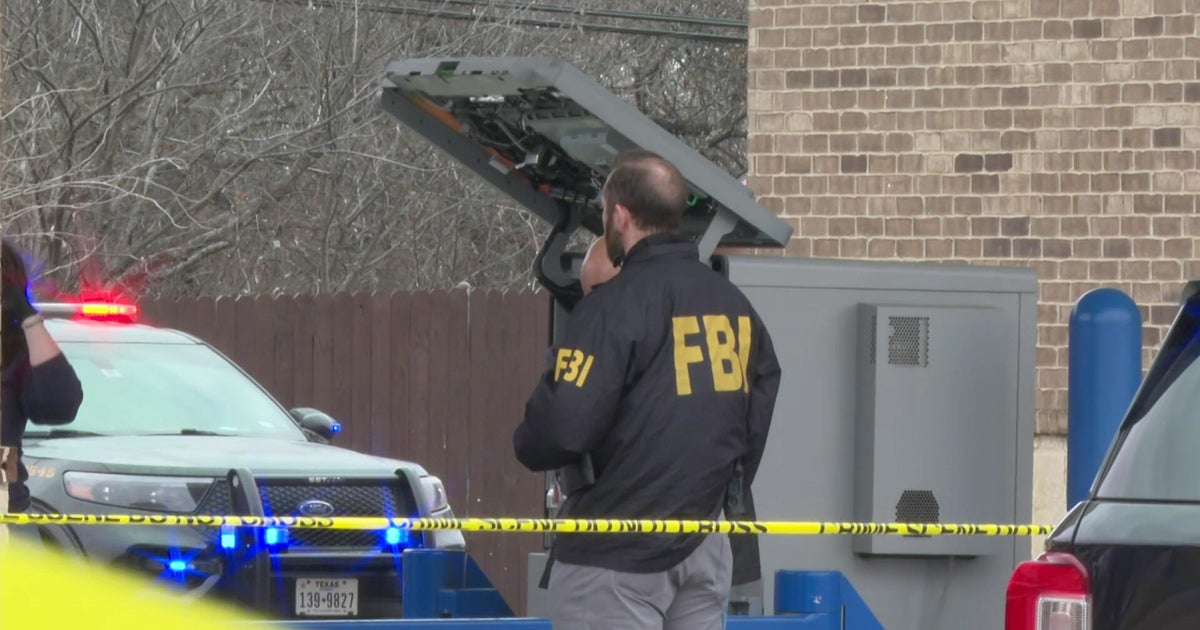Pentagon has known of crime reporting lapses for 20 years
WASHINGTON -- The Pentagon has known for at least two decades about failures to give military criminal history information to the FBI, including the type the Air Force didn't report about the accused Texas church killer who assaulted his then-wife and stepson while serving as an enlisted airman.
The Air Force lapse in the Devin P. Kelley case, which is now under review by the Pentagon's inspector general, made it possible for him to buy guns before the murderous attack Sunday at a church in Sutherland Springs, Texas. Twenty-six people were killed, including multiple members of some families. About 20 other people were wounded.
Rep. Mac Thornberry, the Texas Republican chairman of the House Armed Services Committee, said he was appalled at the Air Force mistake and unsatisfied by its plans to investigate the matter.
"I don't believe the Air Force should be left to self-police after such tragic consequences," he said, adding that he fears the failure to report domestic violence convictions may be more widespread.
Defense Secretary Jim Mattis said Tuesday he has directed the Pentagon inspector general to review circumstances of the Kelley case and "define what the problem is."
At its core, the problem is that military criminal investigative organizations have too frequently, for too long, failed to comply with rules for reporting service members' criminal history data to the FBI.
As recently as February 2015, the Pentagon inspector general reported that hundreds of convicted offenders' fingerprints were not submitted to the FBI's criminal history database. The report found about a 30 percent failure rate for submitting fingerprints and criminal case outcomes. It did not determine the reasons for the lapses.
In February this year, the inspector general's office launched a new review to assess compliance with updated reporting requirements. A spokesman, Bruce Anderson, said that review is ongoing.
The problem has persisted much longer.
A February 1997 report by the Pentagon inspector general found widespread lapses. Fingerprint cards were not submitted to the FBI criminal history files in more than 80 percent of cases in the Army and Navy, and 38 percent in the Air Force.
Failure to report the outcome of criminal cases was 79 percent in the Army and 50 percent in the Air Force, the report said. In the Navy, it was 94 percent.
"The lack of reporting to the FBI criminal history files prevents civilian law enforcement agencies from having significant information on military offenders," the report concluded. It cited several reasons for the lapses, including ambiguous Pentagon guidelines and a lack of interest among the military services in submitting information to an FBI viewed as chronically overburdened with data.
"In their view, little benefit in solving cases is achieved by providing timely information," the report said.
The 20-year-old review was prompted by an act of Congress rather than a specific instance, like the Kelley case, in which a reporting lapse allowed a violent offender to purchase weapons. Federal law prohibited him from buying or possessing firearms after his conviction.
But because it was never added to the FBI's database for background checks, Kelley was able to buy his guns.
Air Force records show Kelley initially faced charges of domestic violence for seven incidents in 2011 and 2012. Five were withdrawn as part of a plea agreement, including two involving Kelley pointing a loaded gun at his wife. He pleaded guilty to striking, choking and kicking his wife and hitting his stepson "with a force likely to produce death or grievous bodily harm." The child suffered a skull fracture.
He was sentenced in November 2012 to one year in confinement and reduction in rank to E-1, the lowest enlisted rank. He was given a bad conduct discharge, which was carried out in 2014.
Kelley was checked into and escaped a mental health facility in New Mexico prior to the conviction, according to a police report obtained by CBS affiliate KHOU-TV. In June 2012, Kelley escaped from the center, fleeing to El Paso, Texas, the report said.
The police report warned that Kelley "was a danger to himself and others as he had already been caught sneaking firearms" onto the base, where he "was attempting to carry out death threats that (he) had made on his military chain of command."




